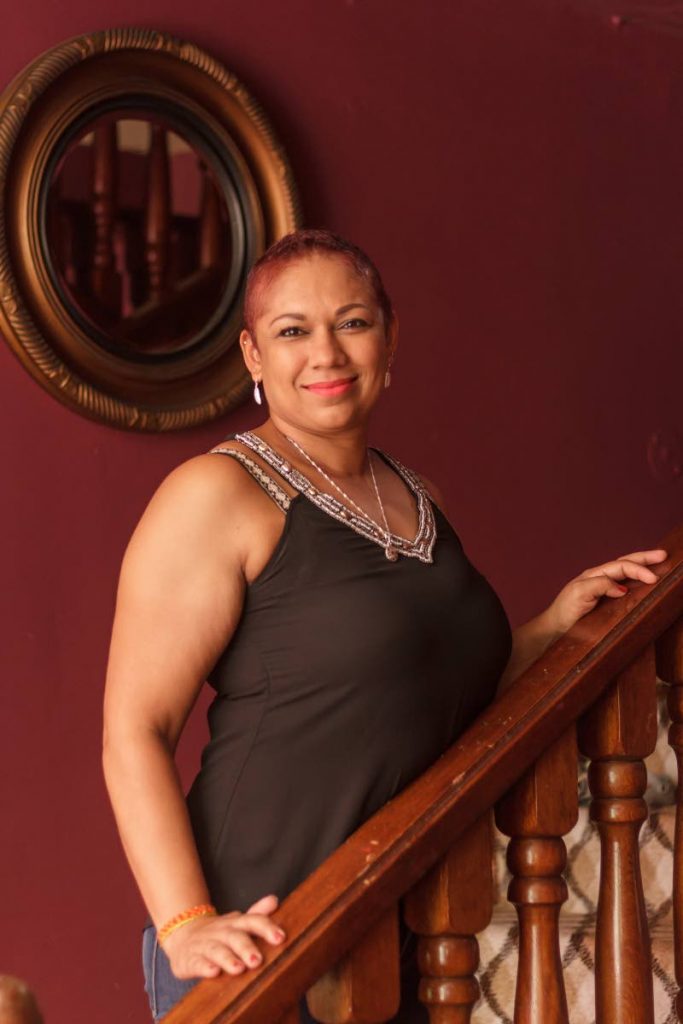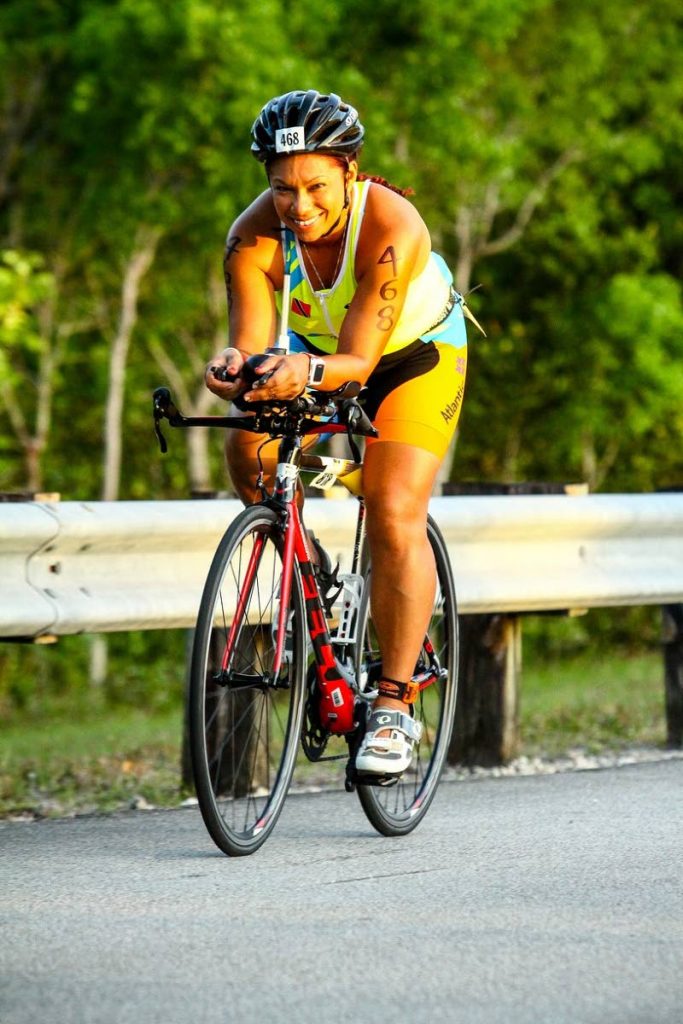Riana Harrinauth: Taking cancer diagnosis, treatment in stride

Riana Harrinauth is as fit as they come. As vice president and team manager of the Trinidad and Tobago Triathlon Federation (TTTF) she has to be. And although her dedication to good health didn’t spare her from being diagnosed with breast cancer in April last year, she believes this, and early diagnosis, helped in a speedy recovering from surgery and follow up treatment.
“I was training for Half Ironman 70.3 in Florida when I found a lump on my right breast. I was scared and worried but I didn’t address it because it was too close to the race. But at the back of my mind I knew it didn’t feel right.”
Harrinauth competed in the event before having an ultrasound done. “After the ultrasound the doctor recommended that I have a mammogram and a biopsy done. The results showed 0 DCIS,” a non-invasive cancer where abnormal cells have been found in the lining of the breast milk duct. It is highly treatable, but if it’s left untreated or undetected, it can spread into the surrounding breast tissue.
“I had to do surgery, and because my mom had died of breast cancer, I opted to do a single mastectomy. It was in the early stages and the lump was small so the oncologist recommended no chemo or radiation.” Her mother, Leela had been diagnosed with breast cancer in 2001 and died in 2005 at age 45. Since then Harrinauth has always been concerned about that aspect of her genetic inheritance.

“I became aware of the high possibility of me developing breast cancer. I may not have been diligent as I should have been, but I treated my body well and paid attention to what it told me. I was 38 when I was diagnosed but I did what was recommended.”
After the surgery, the 40-year-old business analyst at Republic Bank went about her business as usual, but between November and December last year she started noticing tiny lumps in her skin around the same area. “The cancer was back, and I had surgery in January, followed by chemo and then radiation.”

She said for the most part she took the effects of the chemo in stride. “I wasn’t too sick so it was very manageable. I was given meds to manage the nausea and to ensure that my blood count remained high. It was a long process. Every week there were tests and meds, but you do what you have to do to finish the race. I never wallowed in self-pity and I challenged myself to do what I had to do.
She said the radiation made her physically tired and the skin around the treated area became dark and tender. But keeping it constantly moisturised kept the skin from breaking and eventually it got back to normal.
As someone who was physically fit for most of her life, Harrinauth said the temporary damper fighting the cancer had put on her ability to train and work out was a bitter pill to swallow.
“When I was first diagnosed I was so looking forward to the Rainbow Cup in June. I didn’t want to break my routine and momentum. In my mind I was thinking ‘it’s not that bad. Stage 0. I can do the surgery after. But based on my doctor’s recommendation I did the surgery and I’m glad I didn’t wait.”

She said although she was unable to do any strenuous physical activities during her treatment period, she did things with the club in a different capacity and discovered her silver lining. “I did a coaching course for six months and I’m happy I did it. It was more about learning to train other people, more about applying the knowledge than practical training. And although it did involve some practical, for the most part I did not need to be an active triathlete.”
Coming out of that she is now a certified coach and is the national coach for the Carifta Triathlon & Aquathlon team and XO Multisports club.
And as it regards her job, Harrinauth said she was absent from work for about four months but her employer was very understanding. “My managers and coworker were very supportive and it was great not having to worry about the possibility of losing my job while going through all this.” The support was the same from the members of the TTTF and, of course, her family.
During the healing process she sought the advice of a nutritionist for a recommended diet. “I avoid processed foods and opt for organic. I eat a lot of fruits and veggies and sea food. I’m trying to cut out sugary snacks. Chocolates are my biggest weakness and something I’m definitely working on.”
She said there are currently no limitations on her physical abilities and she was fully involved in training her team of young athletes for this weekend’s Carifta Triathlon & Aquathlon Championships is Tobago.
“I’m healed and finished with treatment. I’ve resumed exercising. Initially, I had arm mobility issues because of the surgery. But now I swim, run, ride and do yoga to help build my flexibility. I have a knee injury that is totally unrelated to cancer. And I am training for the Shanghai 70.3 Ironman next year in October,” she chuckled.
She advises women to pay attention to their bodies and their health because cancer can afflict anyone. “It may be hereditary or you may be the first person in your family to get it. Get regular checkups because the earlier you catch it the easier it is to treat. But even at later stages treatments have improved. Technology has improved. You don’t have to do major surgery to get tested. It may be scary to know, but it is scarier to not know. The best thing to do is to find out so you can get treated.”
And if you are diagnosed with cancer, Harrinauth said it does not have to be a death sentence. “A positive attitude goes a long way in helping you to fight the disease. Plus, you never know who you may be inspiring out there.”

Comments
"Riana Harrinauth: Taking cancer diagnosis, treatment in stride"